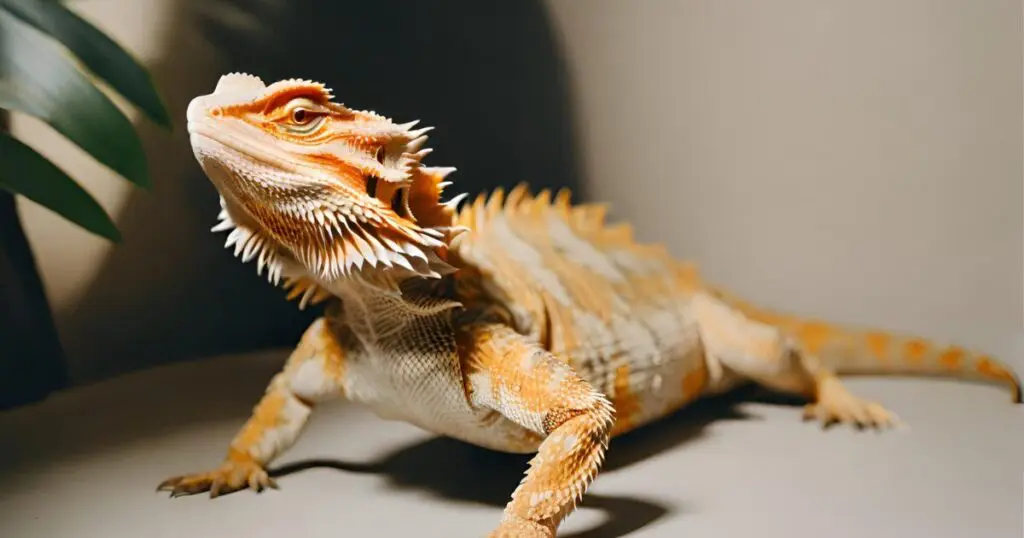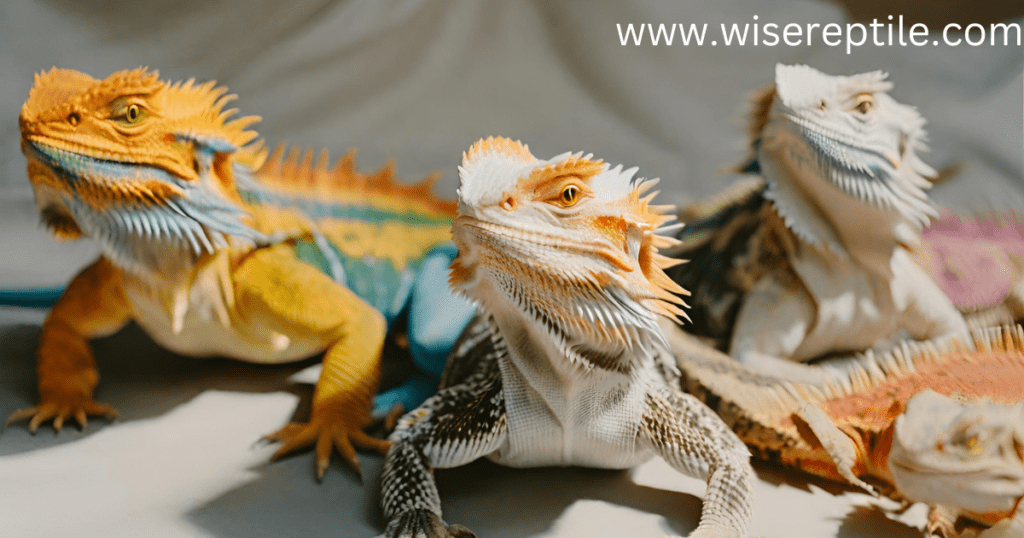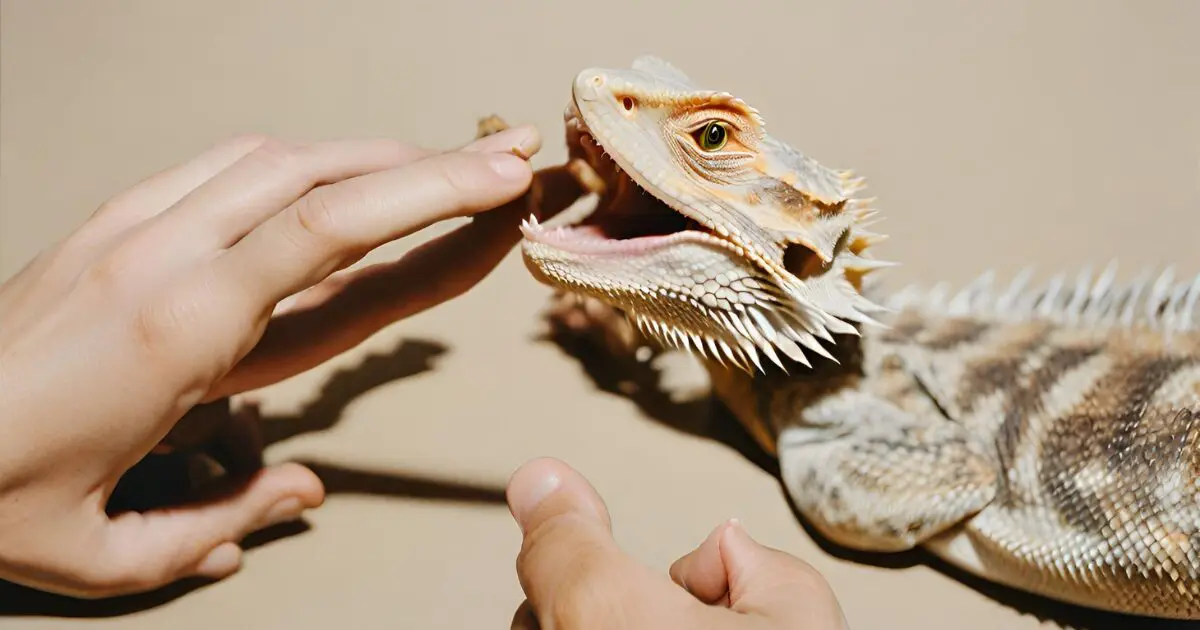As a fellow bearded dragon owner, I know the feeling of uncertainty when it comes to handling these misunderstood reptiles. Their spiky scales and occasional aggressive behavior can make them seem intimidating. But does bearded dragons bite hurt?
The good news is bearded dragon bites are not very painful. Their teeth are small and sharp. They are meant for catching bugs, not ripping skin. A nip from an excited juvenile may draw some blood. But it’s similar to a cat scratch. An aggressive adult can do more damage with their strong jaws. But this is rare unless breeding.
With the right knowledge, both you and your scaly friend can enjoy all the benefits of a close bond built on trust. Let’s get to it!
Why Do Bearded Dragons Bite?
Beardies are gentle animals. If you are a regular reader of my blog, then you know that my Spike is very gentle and loves my companionship. However, he sometimes does bite me. Here are some of the reasons your reptile may want to bite you.
Your Beardie Is Overexcited
Juvenile bearded dragons can sometimes get really excited. Your pet may sometimes lunge and nip in his frenzy during feeding time. It’s like a puppy that playfully nips when it’s riled up. But with training and proper handling, he will calm down.
I avoid quick movements, gently stroke my pet’s back, and speak softly when getting him out. You can try this too. It keeps them relaxed and less likely to nip in their excitement.
Anyway, there is nothing to worry about their bites. They are not going to hurt much like other reptiles’, such as snakes, bite do. You will be surprised by the snake bite death statistics for each year.
They Feel Threatened
Bearded dragons are prey animals, so they get scared easily. Sudden movements, loud noises, and grabbing from above can seem threatening. My beardie gets jumpy when my dog barks and bites the air in fear.
Approaching slowly and speaking gently helps them recognize you’re not a predator. Supporting their whole body rather than restraining them makes them feel secure. Never force interaction if they seem stressed.
With regular, positive handling, they’ll gain confidence and be less likely to bite defensively. It takes patience to earn their trust.
They Want to Stop You Doing Something
Bearded dragons use biting to communicate “back off” if you’re doing something they dislike. My Spike hates having his nails trimmed and will chomp the clippers! Trimming just a few nails per day gets him used to it. Offering a treat afterward helps, too.
Understanding their body language helps them avoid actions they don’t like. An open mouth with a puffed-out beard is a clear “stop” signal. Respect their boundaries and gain their trust.
You Are Hurting Them
Bearded dragons bite when hurt or injured. I have to be very careful when handling Spike after a vet visit. Biting lets me know something is wrong. Check your beardie over thoroughly if they do this, and give them space to recover.
Never punish biting that stems from pain – that erodes trust. With an ill or injured beardie, minimize handling to avoid stress. Let them heal completely before attempting regular interaction again. Their bite is just communicating their discomfort.

They Need More Train
An untrained beardie that isn’t used to handling may bite often. Starting taming and training early is key. At first, my new beardie Spike was very nippy because the breeder didn’t socialize him well.
Offering favorite treats during handling motivates them. Being patient and never reacting negatively is important – they don’t understand punishment. Consistent training helps them become friendlier over time.
Your Lizard Is Hungry
A hungry beardie may mistake your hand for food and bite. Make sure you’re feeding yourself enough protein-rich live insects. Offer veggies and fruits, such as grapes, strawberries, and bananas, too, so they don’t rely just on bugs. Avoid handling them when they seem extra hungry – wait till after they eat.
Keep handling sessions shorter at those times, too. A consistent feeding routine keeps their appetite in check and minimizes food-related biting. Frequent nibbles from a hungry dragon are harmless but do signal they need more grub!
What to Do When Bearded Dragons Bite You?
Getting bitten by your bearded dragon can be startling, but it’s important not to react negatively. Staying calm and responding properly helps prevent future bites.
- Don’t yank your hand away, as this can harm their teeth or jaws. Gently follow their lead to release the bite.
- Don’t punish them by flicking their nose or tapping them. This erodes trust.
- Wash the bite area thoroughly with soap and apply antibiotic ointment to prevent infection. Clean their mouth, too.
- Give them space for a few days to reset. Avoid handling them until they seem less stressed.
- Examine their environment and routine to see what may have caused the bite. Make adjustments to reduce stressors.
- Go back to basics with short, structured handling sessions to rebuild confidence. Offer treats as positive reinforcement.
- Get them a checkup if biting persists to rule out pain or illness.

Are Bearded Dragons Venomous?
No, bearded dragons are not venomous. They do not produce or inject any kind of venom when they bite. Their sharp teeth can draw blood if they bite down hard. But the bite itself contains no toxins.
Some key points:
- Bearded dragon bites may hurt slightly. But they are not medically dangerous.
- You may bleed a little from a nip. Just wash the bite well with soap. Apply antibiotic ointment to prevent infection.
- While non-venomous, bearded dragon saliva can carry bacteria. Take care not to let a bite get infected.
- Very rarely, an allergic reaction can occur if bitten. Seek medical attention if you have any severe reactions.
- No antivenom exists for bearded dragons since they are non-venomous. Only basic first aid is needed for bites.
How to Treat A Bearded Dragon
With the right care and handling, most bearded dragons can be tamed to enjoy human interaction without biting. Here are some tips:
- Start handling at a young age so they get used to it. Go slowly and keep sessions short at first.
- Support their whole body rather than grabbing at them. Make slow movements and give them time to adjust.
- Hand feed treats during handling so they associate you with good things.
- Establish a consistent daily routine of feeding, handling, and bathing. This minimizes stress.
- Give them a large enclosure with proper lighting and heating to reduce discomfort.
- Look for signs of stress like a black beard, gaping mouth, or puffing up. Stop handling them if they seem distressed.
- Check for injury or illness if biting starts suddenly. Pain can cause nippy behavior.
- Use positive reinforcement only. Never punish them for biting.
FAQ
Do bearded dragons have teeth?
Yes, bearded dragons have around 80-100 small teeth designed for crunching insects and vegetation. The teeth are pointed but not large enough to deliver a dangerous bite. You do not need to be worried about them.
Is it OK to kiss your bearded dragon?
No, kissing bearded dragons is not recommended. Their saliva can carry bacteria like salmonella, which can be transmitted to humans and cause illness. It’s best to avoid contact with the mouth.
Is it safe to touch a bearded dragon?
Yes, it is safe to touch and handle a bearded dragon when done properly. Support their whole body, avoid restraining them, wash hands before and after, and watch for signs of stress. This allows safe interaction.
Final Thoughts
Even though bearded dragons look spiky and tough, their bites do not hurt much. Their small teeth are meant for insects. They don’t do serious damage. At most, they pinch or scratch a bit. An adult can bite down hard and cause more pain.
With good care, calmness, and training, beardies become very friendly. They enjoy human company without biting. So, if you treat your beardie right, you can have a gentle pet. Get to know them and gain their trust. Then you can have an enriching friendship without worrying about your fingers!
Shoutout to:
